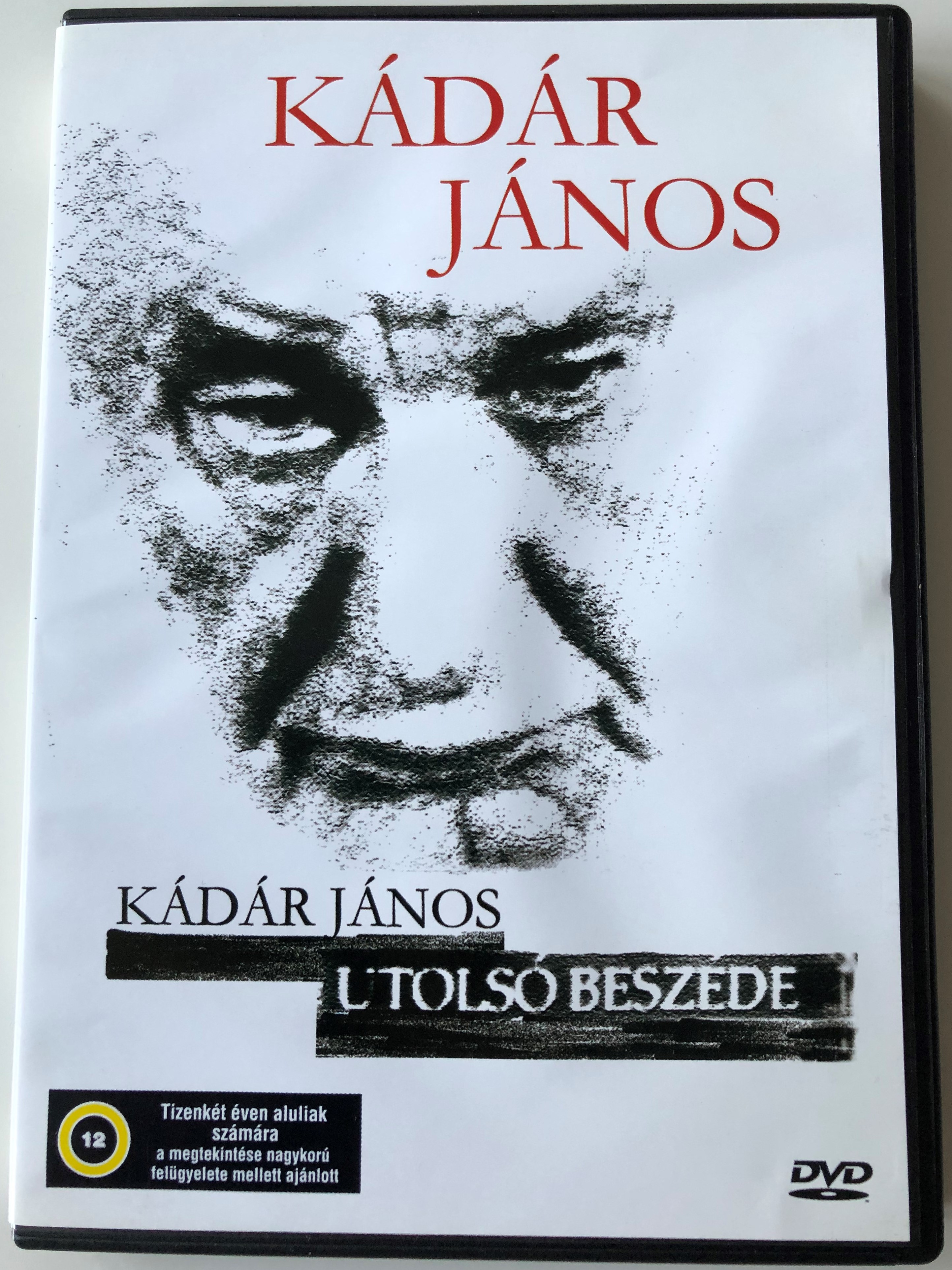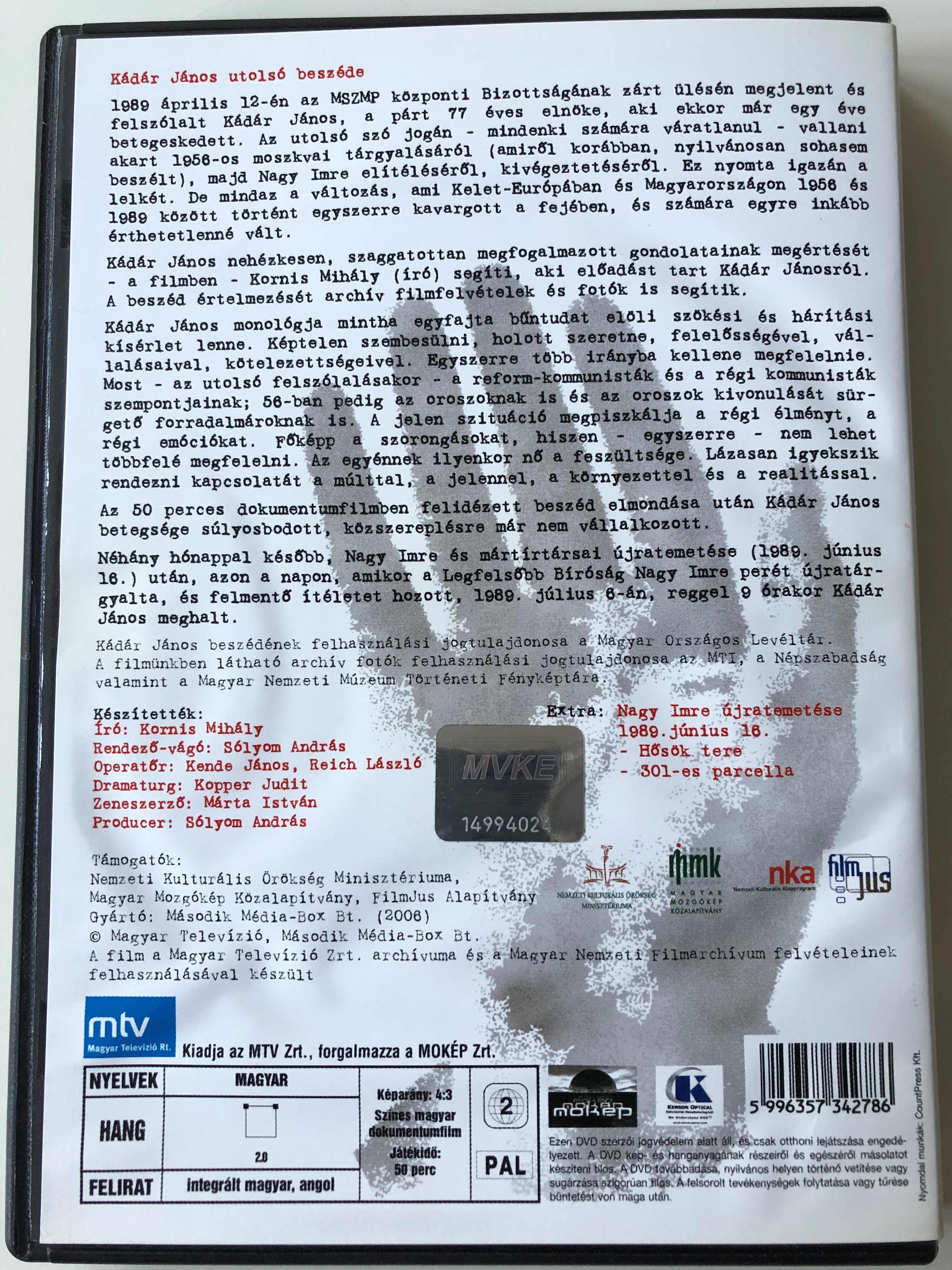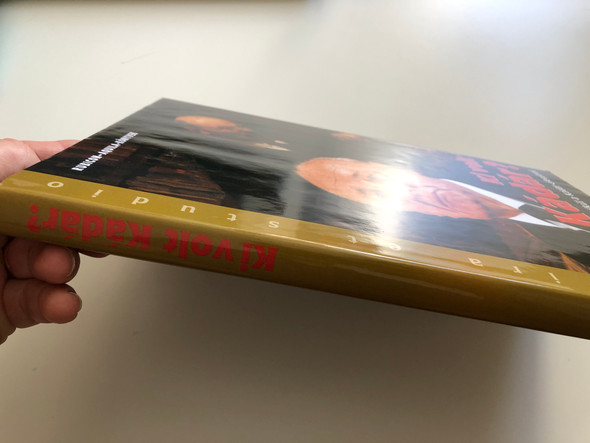Description
Kádár János utolsó beszéde DVD 2008 Last speech of János Kádár / Directed by Sólyom András / Script: Kornis Mihály / Documentary about a Hungarian communist leader and the General Secretary of the Hungarian Socialist Workers' Party
UPC 5996357342786
REGION 2 PAL DVD
MADE IN HUNGARY
AUDIO: Hungarian 2.0
SUBTITLES: Hungarian, English
Total Runtime: 50 minutes
English Summary:
János Kádár (/ˈkɑːdɑːr/; Hungarian: [ˈjaːnoʃ ˈkaːdaːr]; 26 May 1912 – 6 July 1989) was a Hungarian communist leader and the General Secretary of the Hungarian Socialist Workers' Party, presiding over the country from 1956 until his retirement in 1988. His 32-year term as General Secretary covered most of the period the People's Republic of Hungary existed. Due to Kádár's age, declining health and declining political mastery, he retired as General Secretary of the party in 1988 and a younger generation consisting mostly of reformers took over.
As the Communists took over Hungary in 1947–48, Kádár rose quickly through the Party ranks, serving as Interior Minister from 1948 to 1950. He took part in the trial and interrogation of former secret police chief László Rajk, one of the most infamous show-trials in the post-war Eastern bloc. In 1951, he was imprisoned by the Stalinist regime of Mátyás Rákosi, but was released in 1954 by reformist Prime Minister Imre Nagy and became a rising star in the Party once again. On 25 October 1956, during the Hungarian Revolution, Kádár replaced Ernő Gerő as General Secretary of the Party, taking part in Nagy's short-lived revolutionary government. However, on 1 November he broke with Nagy over the latter's decision to withdraw from the Warsaw Pact; secretly defecting to the Soviets. When the Soviets crushed the Revolution on 4 November, they selected Kádár as the next leader of Hungary. After the Revolution was crushed, Kádár initially presided over a reign of terror, ordering the execution of many participants in the Revolution (including Imre Nagy and his close associates) and the imprisonment of many others. However, he gradually softened his approach as the years passed, often granting individual amnesties, and moderating his regime's overall governing style. By 1963, the last surviving prisoners from the Hungarian Revolution had been released.
As leader of Hungary, Kádár was a team player and took care to consult his colleagues before acting or making decisions and his tenure saw an attempt at liberalising the economic system to put greater effort to build up industries aimed at consumers. His rule was marked by what later became known as Goulash Communism. A significant increase in consumer expenditures because of the New Economic Mechanism (NEM), a major economic reform, reintroduced certain market mechanisms into Hungary. As a result of the relatively high standard of living, a favorable human rights policy and more relaxed travel restrictions than those present in other Eastern Bloc countries, Hungary was generally considered the best country to live in Central and Eastern Europe during the Cold War, also expressed in the informal term "the happiest barrack". On 6 July 1989, an ill Kádár died after having been forced to retire. Kádár was succeeded by Károly Grósz as General Secretary on 22 May 1988. Grósz would only serve a year in this post due to the fall of communism in Europe in 1989.
Hungarian Summary:
1989. április 12-én az MSZMP központi Bizottságának zárt ülésén megjelent és felszólalt Kádár János, a párt 77 éves elnöke, aki ekkor már egy éve betegeskedett. Az utolsó szó jogán - mindenki számára váratlanul - vallani akart 1956-os moszkvai tárgyalásáról (amiről korábban, nyilvánosan sohase beszélt), illetve Nagy Imre elítéléséről, kivégeztetéséről. Ez nyomta igazán a lelkét. De mindaz a változás, ami Kelet-Európában és Magyarországon 1956 és 1989 között történt egyszerre kavargott a fejében. Kádár János nehézkesen, szaggatottan megfogalmazott gondolatai értelmezését Kornis Mihály segíti, aki előadást tart Kádár Jánosról. (A beszédet archív filmfelvételek és fotók is tagolják.)
Kádár János monológja mintha egyfajta bűntudat előli szökési és hárítási kísérlet lenne. Képtelen szembesülni, holott szeretne, felelősségével, vállalásaival, kötelezettségeivel. Egyszerre több irányba kellene megfelelnie. Most - az utolsó felszólalásakor - a reform-kommunisták és a régi kommunisták szempontjainak; 56-ban pedig az oroszoknak is meg az oroszok kivonulását sürgető forradalmároknak is. A jelen szituáció megpiszkálja a régi élményt, a régi emóciókat. Főképp a szorongásokat, hiszen egyszerre nem lehet többfelé megfelelni. Az egyénnek ilyenkor nő a feszültsége. Lázasan igyekszik rendezni kapcsolatát a múlttal, a jelennel, a környezettel és a realitással. A beszéd elmondása után Kádár János betegsége súlyosbodott, közszereplésre már nem vállalkozott. Néhány hónappal később, Nagy Imre és mártírtársai újratemetése (1989. június 16.) után, azon a napon és ugyanazon órában, amikor a Legfelsőbb Bíróság Nagy Imre perét újratárgyalta, és felmentő ítéletet hozott, 1989. július 6-án, reggel 9 órakor Kádár János meghalt.
- Sólyom András
- Kornis Mihály
- Mártha István
- Kende János Reich László
- Kopper Judit
- Sólyom András


























